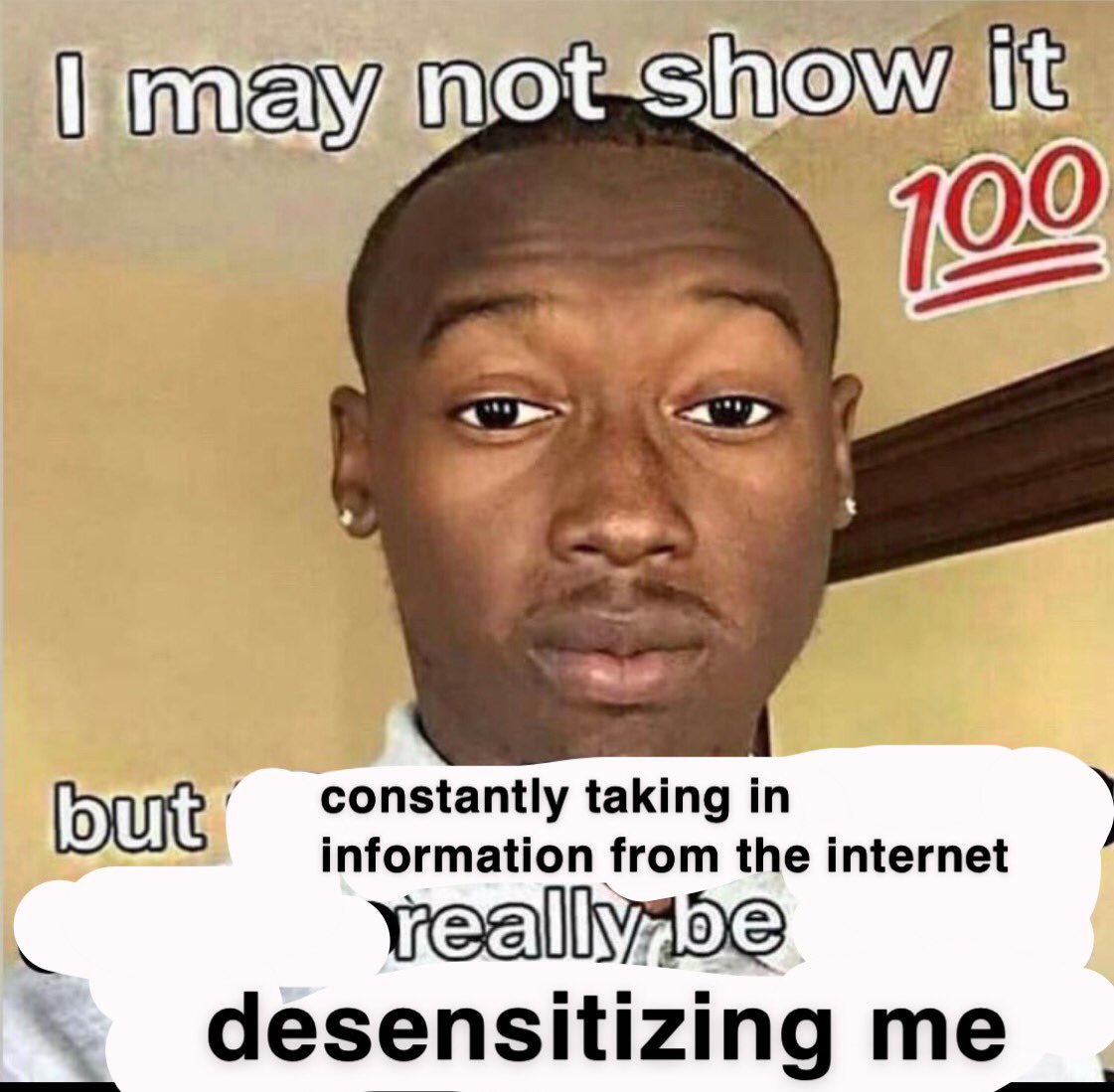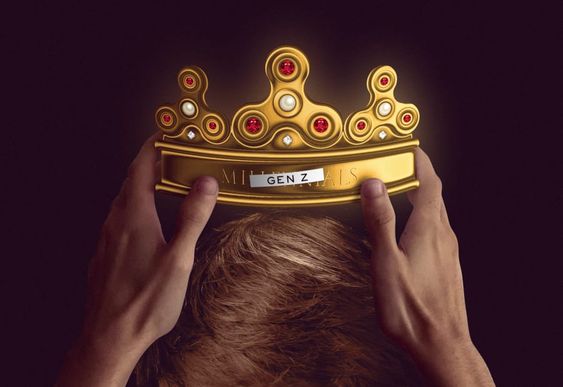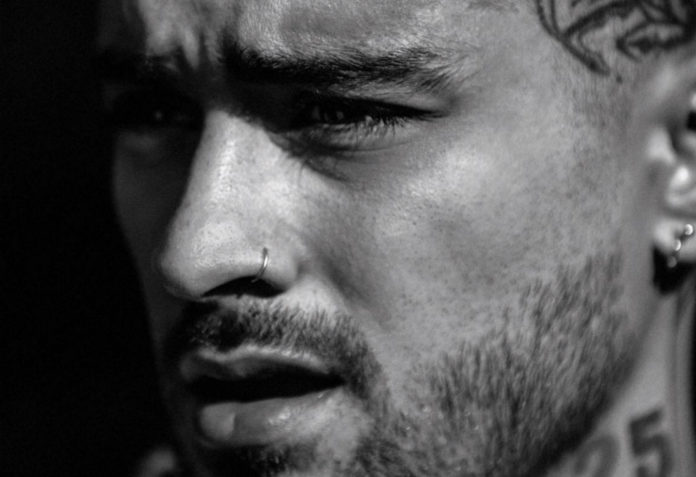Warning: This article contains potentially triggering or upsetting information regarding school shootings.
*Editor’s Note: This article was edited in 2022 in order to update the media/stories featured.
Generation Z (Gen Z) is a group of deeply-anxious people born in 1997 – 2012, according to Pew Research Center (but for the sake of this piece we’ll be discussing the group of Gen Z that primarily identifies with each other online — people born in 2000 to about 2008). Each generation has a distinct brand of humor that defines their era, but Gen Z’s humor is unlike any past generation’s style of comedy because it is so niche and built upon years of exposure to stressful incidents and the internet. Gen Z has more that connects its members than other age groups, thanks to international experiences and the growth of social media. Through this connectivity and trauma, Gen Z has developed a breed of humor all its own, with jokes no other era of people have even had the opportunity to create.
Before one can analyze Gen Z’s humor, they must confront Millennials. Millennials have “Dear Sister,” the SNL digital short that revolutionized “Millennial comedy,” which was born of then-new SNL shorts and Adult Swim clips. It didn’t make a whole lot of sense, and they liked it that way. In that regard, Millennials and Gen Z are alike. However, there is a growing comedic divide between the two groups.
IF OUR LOVE IS A TRAGEDY WHY ARE YOU MY REMEDY? IF OUR LOVE IS INSANITY WHY ARE YOU MY CLARITY? pic.twitter.com/OAUNhpOMW5
— i dont have a name (@de4dname) July 25, 2022
This split is often exemplified on TikTok. Millennials are seen as the generational ally to Gen Z, but studies have shown that generational competition can be an influence. Gen Z has expressed frustration with Millennials’ “adulting humor.” While it’s not a universal distaste, this can be seen in the way the “OK Boomer” meme that was started by Gen Z but primarily co-opted by Millennials. It’s the cycle of trends – young people enjoy something and it starts to spread to other groups, diminishing its charm. This annoyance was only very recently brought to the attention of Millennials. One of the most popular creators of teasingly anti-Millennial humor is 19-year-old Sammy Tully, who’s brought a lot of attention to the jokes.
This frustration is of course not universal, but lots of members of Gen Z are exasperated by the way Millennials worked to create many of the world’s issues, but then also ignore their role in these problems. One of the most common issues that Millennials lead to, is the surveillance state, particularly the monitoring of the Internet of Things (IoT). There is a generational apprehension to confront their role in this, on the part of Millennials. There’s a clear divide here, as some Millennials are expressing that they are hurt by these attacks, and one Millennial on TikTok even asked, “We come in peace goodness gracious, why are they so furious at us?” Many members of Gen Z are annoyed by the neoliberalism of Millennials, as Gen Z’s members tend to have a more complex political identity, often leaning towards more extremist political tendencies.
Can’t believe that Gen Z hates Millennials, the generation that created an international online surveillance state because we were horny
— Mike Drucker (@MikeDrucker) June 14, 2020
“We may be the most f**ked-up generation the world has ever known,” Chelsea Adelaine Hassler of PopSugar once teasingly wrote about Millennials. Well move on over, Gen Z is here to claim that crown. Millennials lived in the 90’s (as they like to constantly remind you), a pretty sunny era, until the early 2000s. 9/11 was the defining moment of trauma and the conclusion of childhoods for many Millennials, as it was a start to the darkness. Gen Z has only heard about this event in the context of history, and the way it served the framework of what was to come for them. Millennials were raised in a system that was preparing them for a world that has essentially ceased to exist.
However, Gen Z lived with the threat of climate change, war, terrorism, economic crises, school shootings, a global pandemic and even the death of Vine at a young age. Crises never really stopped for the members of Gen Z because it was happening before they were born. This is expressed in Gen Z’s humor from a startlingly young age – and that is where the line begins to be drawn between the humor of Millennials and the confusing storm of Gen Z’s comedy.
Constantly living through historical events isn’t all it’s cracked up to be. When it seems like every time something bad happens it will only get worse, your generation is going to turn to a very warped version of nihilism. Humor has become a generational coping mechanism for Gen Z. For example, when tensions reached a new high between Iran and the US in January of 2020, Gen Z was already on TikTok and Twitter making jokes and trying to process what was happening.
A report by the American Psychological Association found that “91 percent of Gen Zs between ages 18 and 21 say they have experienced at least one physical or emotional symptom due to stress in the past month compared to 74 percent of adults overall.” Gen Z tends to play things down, though. Memes, irony and an understanding that things are probably going to get harder for the world, has bred a generation of teens sarcastically expressing their issues online. You can usually see this paired with a peace sign and a claim to be “living” or simply saying something along the lines of “it do be like that” (a now slightly outdated version of Gen Z’s “it is what it is”). 16-year-old Mark Bridges summed this up in his TikTok, in which he acted out “Gen Z kids talking about their serious issues.”
Video via TikTok who is *now* @okmark on TikTok
School shootings are a defining aspect to life for most teens in the United States (US). This is not to say that all students in the US have experienced a school shooting, but if you go to school in the US you probably have had a lockdown drill or a real lockdown at some point in your school career, as in 2015/2016 95% of public schools in the United States were conducting them. March For Our Lives refers to Generation Z as “Generation Lockdown,” and they’re not wrong. A study by the American Psychological Association found that “three in four of Gen Zs report mass shootings as a significant source of stress.” While gun violence has impacted generations of children in many areas, school shootings are a common trait for Gen Z across the country.
Through this stress, a deeply disturbing form of humor has grown. No other generation has been able to form this kind of “comedy,” as they have not experienced the same alarming rate of gun violence in their schools as teens today – “School shooter humor.” This is not an argument about whether it’s funny (frankly, it’s not at all), but it blends the “edgy” sensibilities and shock factor that most teenagers have always enjoyed, with the dismal reality that many teens today face.
TikTok is where most comedy for teenagers lives today and if you visit the “Sweet Caroline” song on the app, there are countless videos about “the quiet kid.” This term is a variation of what teens will label school shooter threats, as you can find teens making comments about “the quiet kid” or making jokes like “It’s all fun and games until the kid in the back of the classroom reaches into his backpack.”
You’re probably asking, “Why ‘Sweet Caroline’?” That’s because as with most jokes from Gen Z today, it started as a niche joke on TikTok that has snowballed. There’s a popular sound on TikTok where the song “Sweet Caroline” has the “dum-dum-dum” bit replaced with gunshots. This sound became wildly popular, used in countless POVS about shooting. Not only does this exemplify the way layers of internet knowledge can be required to decipher Gen Z comedy, it also highlights the way some teens find a twisted sense of amusement regarding something that is so detached from everyone else.
@aidansandoval1212 When being nice to the quiet kid backfires #fyp #foryou #foryoupage
As with many “dark humor” jokes, teen boys flock to the sound. Scroll through the variations of “Sweet Caroline,” and you’ll see pages of teenage boys making “school shooter jokes,” over and over again. Numerous other songs work in this way, such as “Pumped Up Kicks,” and even audio that’s just the introduction beat to that track. 15-year-old Nicholas Grey made one of the “Sweet Caroline” plot twist jokes, as he made a TikTok about the quiet kid telling him to “wear red tomorrow.” In the end, the students compliment each other and it seems like a nice moment. [This video/account has since been deleted].
The panic in the comments may not make any sense to some, but it refers to the trope amongst teenagers about the way students plotting violence will tell kids to not come in or to wear a certain color to be spared. It’s sick. These jokes come from a place of deep damage, as the comments are flooded with kids talking about holding their breath “waiting for it.”
Another example is 16-year-old Luke McLaughlin’s video in which he plays “scary” music and teasingly writes, “This is a warning [to] all my East Coast friends…don’t log onto online school [tomorrow]…just don’t.” Again, this may not make any sense to those who are detached from the perverse world of Gen Z’s internet culture, but teenagers filled the comments, saying things like, “This triggered my fight or flight.” The video refers to the kinds of “warnings” that mentally damaged teenagers make prior to committing violence. Again, a disturbing “joke” that stunningly makes sense to over 177,600 viewers (at the time of publication).
https://www.tiktok.com/@lukiepukie03/video/6804621728904432902?lang=en
It’s also gone international. 17-year-old Samuel Weidenhofer from Adelaide, Australia made a TikTok teasing students in the US for expecting the gunshot sounds. The comments were full of over 20, 2000 teenagers saying things like, “I got triggered waiting for the gunshot drop lol.” Teenagers from the US aren’t the only ones exposed to this kind of “humor.” Not all young people find these kinds of jokes funny, many do not, but the rise of this style of humor represents a vast understanding of it, and illustrates a generation’s detachment from the reality of their older counterparts.
@itssozer i feel bad for laughing #fyp #foryoupage #america #viral
Many members of Gen Z are involved in activism, but they’re also able to make jokes about different social issues. A prime example of this is the way stan twitter has mobilized during the Black Lives Matter protests and even the way many young people have made fan edits of the protests. The intensity of a generation raised in chaos has been funneled into both the activism and coverage of protesting. However, this lighthearted approach to social justice can emphasize the presence of white and affluent teenagers involving themselves in a space where they bring “humor” to grave situations, such as the “Manny says ACAB” joke, in reference to the Diary of a Wimpy Kid series. This works to exacerbate the issue of Black culture, comedy and African American Vernacular English (AAVE) being recycled as “new” comedy.
*This detachment from the reality of jokes’ subject matter can lead to what is considered “irony poisoning.” This consuming sense of detachment and superiority leads many teens, and even adults, to tumble down the Alt-Right Pipeline. By making so many jokes of circumstances, people lose the ability to identify when they are using humor or being genuine. The use of certain memes such as the “tradwife” and “Pepe The Frog” allow, primarily, white teenagers to slip into white supremacy under the guise of subversive content.
i hate when people say that our generation needs to learn how to take a joke. we can take a joke, we just don't joke about rape, racism, sexism and homophobia.
— ًmina (@1989sFILMS) June 24, 2020
Gen Z humor is simply ridiculous in many ways. It’s not always cruel or political. It’s random, it’s silly and it’s all together bizarre. Elise Sanders of the Whitman Wire once proposed that “Gen Z humor is the new Dadaist movement.” The purpose of the Dadaist movement was for artists to reject the logic and restrictions of capitalist societies. Not all members of Gen Z enjoy the darkness, as there’s general fun and relatability to be found in other corners of the internet. There’s lots of wholesome content, and much of Gen Z prefers to not consume media that uses offensive rhetoric. A lot of Gen Z humor is incoherent, but it certainly can be entertaining.
A great deal of comfort with making jokes regarding these topics comes from a constant barrage of information, as Generation Z was raised on the internet, leading to further separation and desensitizing. Millennials were the first group to really be brought up with computers and the internet, but Gen Z was the first generation raised on the fully developed web. Most members of Gen Z can’t remember a world without YouTube. They were raised on computer games, Tumblr, Vine, Instagram, Omegle, DeviantArt and so many other sites that impact young children at crucial ages. It means that this humor is rapidly and constantly changing. Constant access to news and web can be educational, disillusioning and numbing.

Image via @mynameiscarterk on Twitter
Other generations may understand these jokes, but they just simply don’t share the overwhelming experiences to form and process this “comedy” as a collective age group, the way Generation Z does. When your world makes no sense and is entirely online, why should your comedy be any different?
Feature image via BuzzFeed News













